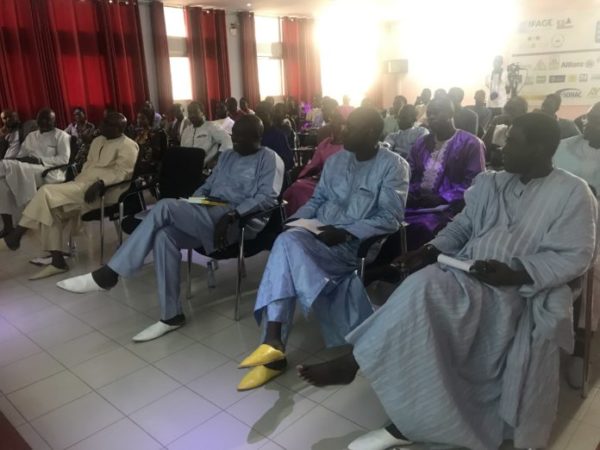The Interafrican Institute of Training in Insurance and Business Management (IFAGE) starts the academic year with an inaugural conference, October 25, 2019, dedicated to the actuary, “this risk manager unknown to the general public” as the Mandaw Kanji, president of IFAGE, pointed out at once, planting the scenery of a continent still in catch-up. “Africa has collected $ 68 billion in premiums in 2018, only 1.31% of global premiums. Moreover, says the former controller, “70% of this volume is achieved in South Africa, leader of the continent ahead of Morocco (6%) and Kenya (3%)”. For its part, the Interafrican Insurance Markets Conference (CIMA), which groups 14 countries, generated about $ 1.8 billion in premiums in 2016, “well below its potential.
These figures recalled by Mr. Kanji show at least the boulevard of progression of the CIMA zone and mark the ground for the speaker of the day, Bell Fanon Ouelega, US Fellow of Society of Actuaries, mathematician, specialist in quantitative finance, actuary ( DESS, FSA), straight from Cairo, preceded by his 13 years of experience in the field. “The job of actuary is out of life insurance and pension funds,” he says, detailing the 8 steps of life insurance. From the “risk-based” premium, which calls for the low law of large numbers, to the “risk-based solvency reserve”, to the accumulated premiums that are invested up to the option of reinsurance …
The actuary, compulsory in the USA, optional in Africa
In short, “the uncertain nature of the insurance business model positions the actuary at the center of its management.” In fact, Mr. Ouelega demonstrates, “the actuary is a master of the probability charged, within the insurance company. insurance or merchant banking selling derivatives, risk management and having to understand anthropology and sociology to do statistical modeling and, among others, asset-liability management, mathematical provisions and the calculation of reserves to cope with the vagaries of the future “.
For the time being, while in the US and Germany, the actuary is mandatory for the approval of a company or an insurance product, Africa is an exception. Many companies of the continent continue to set their premiums arbitrarily without appealing to the actuary who, when it exists in the organization chart, does not have all the latitude necessary for its activity. “Premiums go down, risks increase,” says Mamadou Faye, General Manager of SEN ASSURANCE VIE and President of the National Institute of Actuaries of Senegal (INAS). So that in case of disaster, the difficulties are revealed, the companies draw on their own funds, reduce their solvency and expose themselves to the reminder to the order of the CIMA. The premium that corresponds to a commitment spread over the life of the contract should not be confused with a profit.
Following the speaker, a debate has pitted professionals against the current approach of the regulator which favors the capital according to the risk base capital (RBC), with a ratio of 1 billion CFA francs of turnover for 200 million equity. Did the determination of these ratios call for actuarial expertise, question one voice in the room? In the same vein, how did we arrive at the same risk weights between the automobile and health insurance branches?
Straddling the wall of culture
The debate ended with the low penetration of insurance in Africa. Beyond the wall of culture that is fingered to apologize, the speaker believes that it is up to insurers to put in place products adapted to African society. Egypt has put in place a product “insurance divorce” to allow the woman, often lacking in case of marital breakdown, to cope with this hazard. In Nigeria, the product “Key Man Insurance” allows SMEs, companies and organizations, to face the risk of disappearance of the leader, key figure of the company. The same is true of the Child Education Plan designed to guarantee the education of children who have lost one of their parents. In the US, the insurance against robberies makes its way under the leadership of the Federal Deposit Insurance Corporation. As the former technology minister, Abou Lô, a former insurer in Germany, puts it, “you have to think outside the box and put in place the right products”. Insurance must take into account the sociology of the milieu.



